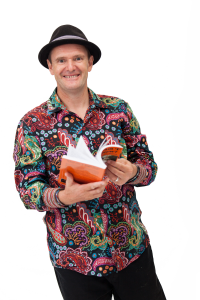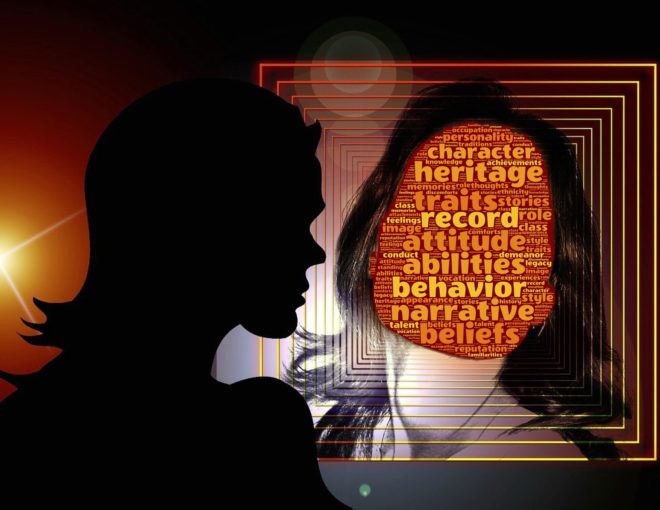When I think of the word ‘beliefs’ I think of several things. What I would like to do for this article is to separate these thoughts out and place them into three distinct lines of thought and aspects.
The first one is ‘Self-Belief’, the second is ‘Belief in Other People’ and the final one is ‘Spiritual or Religious Beliefs’.
Self-Belief
For me, self-belief is one of the most empowering and necessary things that I can bring into my life. It is the one thing that I can work with every day as I engage with both myself and other people with my interactions, communications and connections.
Learning and putting into place new belief systems to replace the old ‘used by date’ beliefs, that may have been in my head for decades, is a constant activity for me.
Having a deep sense of self-belief enables me to do so much in my life. It enables me to be more courageous, more vulnerable, more adventurous and more emotionally open, empowered, connected and healthier – physically, emotionally, mentally and spiritually.
Having a good sense of self-belief helps me to keep the doubts from forming less often. It helps me to stay more positive generally, which then ripples out around me.
In my work as a counsellor, psychotherapist and teacher I work a lot with people who lack this sense of self-belief. I see lots of clients, students and workshop participants who have a very negative view of themselves.
This is of no surprise if we take a moment to look at all the outer messages around us that point, show, tell, or determine how we should look, feel, act or even think.
From a very early age we are surrounded by these messages and if we are not guided and protected by our parents and educators from this and given positive reinforcing words to support, encourage and nurture us, then it is almost inevitable that we will have some self-belief issues.
The basic message from the advertising world is ‘You are not good enough (unless you buy and use our product)’.
These messages get implanted within our subconscious mind, as that is most often how the advertising is designed and we then act out from these messages to make ourselves more acceptable, desirable or beautiful.
To overcome and heal some of our negative beliefs about ourselves we basically must learn how to ‘love ourselves’. We must go on a journey of self-discovery, self-acceptance, self-honouring and perhaps even self-forgiveness.
Taking the time to do this, whilst consciously trying to steer away from the many artificial things that should make us look or feel better is often a challenge. Bringing ourselves back to who we are without our masks (clothes, make-up and all those other things that keep us out of self-love) can generally only be done if we have a mission to do so.
Otherwise it is easy to get caught up in the social conditioning and stay stuck. On some level, we are all in this world, but when it gets to the stage where self-belief is diminished to the point of alcohol or drug addiction, anxiety or obesity, then it has gone too far.
Sadly, this has become quite a normal thing for us to deal with in our western cultures. All too often I see people in these states of dis-ease and in the position of not loving themselves.
For many ‘denial’ comes into the picture. This is often true of people who are obese or with parents who have obese children. Not accepting or admitting that their obesity is an issue is often a clear sign that they are not loving themselves.
Denial is a very delicate issue to work with in the psychotherapeutic process, but one that is essential in supporting people to (re) enter the space of self-love.
In my profession, I work with hundreds of people a year to help them to find or restore their sense of self and it is very rewarding to see the results when they make the choice to change.
When people step more fully into themselves and find that (next level of) self-belief it is wonderful to see the sense of liberation and freedom that they receive. The inner celebration is obvious as I see their energy shift and the smile on their faces widen.
Seeing a client step back into my studio after a week or two of going to the gym, or giving up smoking, alcohol or marijuana is a great feeling. In these moments, I am truly rewarded in my work.
In my own life, I have a range of people that I believe in. They include all of the above. However, sometimes my belief in them can get challenged if I see or experience them doing something that does not fit in with my own personal belief or ideology, which can make it a challenge sometimes to keep them in the elevated position I once had them placed.
I am sure that is also true for people who have me as someone that they believe in when I am not in my truth or integrity. This is why I feel that it is so important for me to try and ‘walk my talk’ every day, which sometimes I do not always achieve as I struggle with my own inner challenges in life.
If I cannot challenge myself and learn to step into, and act of this truth, integrity and belief in myself then how can I feel any sense of self-love or self-belief. This is the cornerstone of all the work that I do on myself and the cornerstone of all that I try to teach my clients, students and workshop participants. This, for me, is the essence of self-belief.
Belief In Other People
Having a belief in other people is an interesting thing to contemplate. It is interesting to get a sense of who in our own lives we believe in. Who are these people? Why do we believe in them?
In my work, I have to believe in my clients. I have to believe that they want to change. I have to believe that they have the courage, the will and the energy to make the changes.
I have to believe that they and I will form a relationship to enable this to happen. If I do not carry this belief and set up a negative non-belief about it, the reality is, not much will change.
I find that when I work with people in this capacity I have to keep all judgement, negativity and any possible reactions right out of the picture. I must be very present and focused.
We also have various beliefs in people in our social, political, medical, scientific and spiritual realms and with our mentors, coaches, counsellors, idols and perhaps even our employers or bosses.
In these realms, it is about believing in someone who has, from our own perspective, a (slightly) higher standing than ourselves. It is directed at someone who we ‘look up to’ for guidance, support, help, encouragement, learning or inspiration.
Other people that we can find belief in could be our partner’s, our parents or other family members and of course our friends.
Having a belief in someone is a very empowering thing as long as it is not done in a co-dependant needy way. Having an inspiring person in our visualisations or meditations or on a picture or photograph can be a useful tool to use for our own growth.
My mentors and inspirational people include: Nelson Mandela and Rudolf Steiner and several close friends, my beautiful wife and all of my children.
Each of them help me to grow from the gifts that they bring me and from what I see them doing and achieving. When I am in need of some inspiration it is one of these that I often tune into.
Spiritual Or Religious Beliefs
This belief goes way outside of ourselves in one sense and way within ourselves on another. This belief is, for many people, based on a story; an imagination.
In the mainstream, especially from a more material scientific perspective, it is often very difficult to ‘prove’ the existence of such things as angels, spiritual entities or even a God.
Unless one has experienced something that one ‘knows’ is our own truth, then it is something that sits in the realm of belief. Knowing and believing are two separate things. We either ‘know’ what we have experienced or we ‘believe’ in it as a potential; as a possibility.
Even in this knowing, if it is not backed up by other people having the same real, measurable experience, it could be argued by others that it might be an imagination or a fantasy.
Having a spiritual or religious belief is generally something that we have come to have in our lives as a pathway of guidance or support. Moving from a community or institutional belief to the absolute inner knowing from within ourselves is what makes it a truth for us.
This is connected to the feeling of self-love, of self-belief. Without that deep sense of self-belief, it is not easy (or perhaps it is impossible) to hold this truth of spiritual or religious knowing.
Because of the nature and content of this magazine many of you readers will be ‘spiritual people’ and you will be either in a place of exploration, partial belief, full belief or in a place of knowing.
These are the steps people generally take on this journey as they get more and more trust in both themselves and the higher knowledges and the realms of the spiritual or religious worlds.
One of the most popular ‘images’ that we see and work with today in the ‘spiritual community’ are that of Angels. They are on cards, websites, flyers, car bumpers and even on supermarket products.
Going from the image of something like an Angel to the belief in their existence and then to the inner-knowing of their existence is quite a journey which would include the process of working through and into belief, faith, trust and knowing.
Where are the Angels in your own life? How real are they? Can you place them where they truly belong so that you are authentic in your own being, in your own life? How close are you to ‘knowing’ their existence from a real ‘seeing’ experience?
All in all, belief is something that we all have. One of the beliefs that I wish to add to end this article is the belief that I have in this magazine and in the vision of what Sharon White is holding for the development and growth of our Global Healing Exchange Community.
Adrian Hanks is a Teacher, Writer and Speaker. He lives in Sydney, Australia and travels and works nationally and internationally.
You can find much more information on living a holistic lifestyle in these free magazines and on our YouTube channel.
 Adrian Hanks – Life Mastery Coach
Adrian Hanks – Life Mastery Coach






